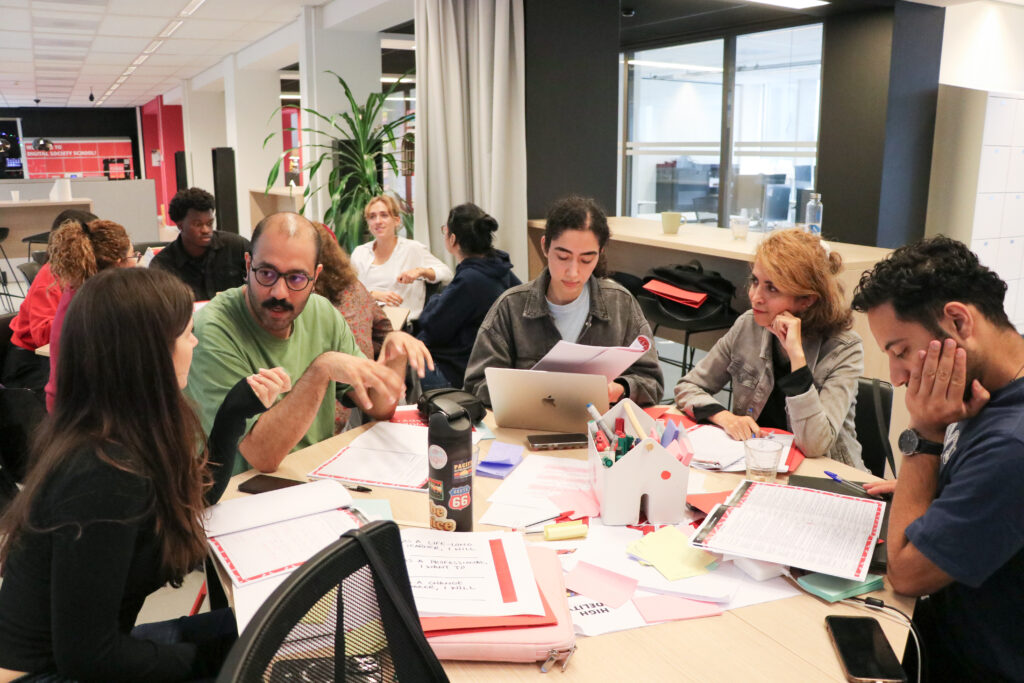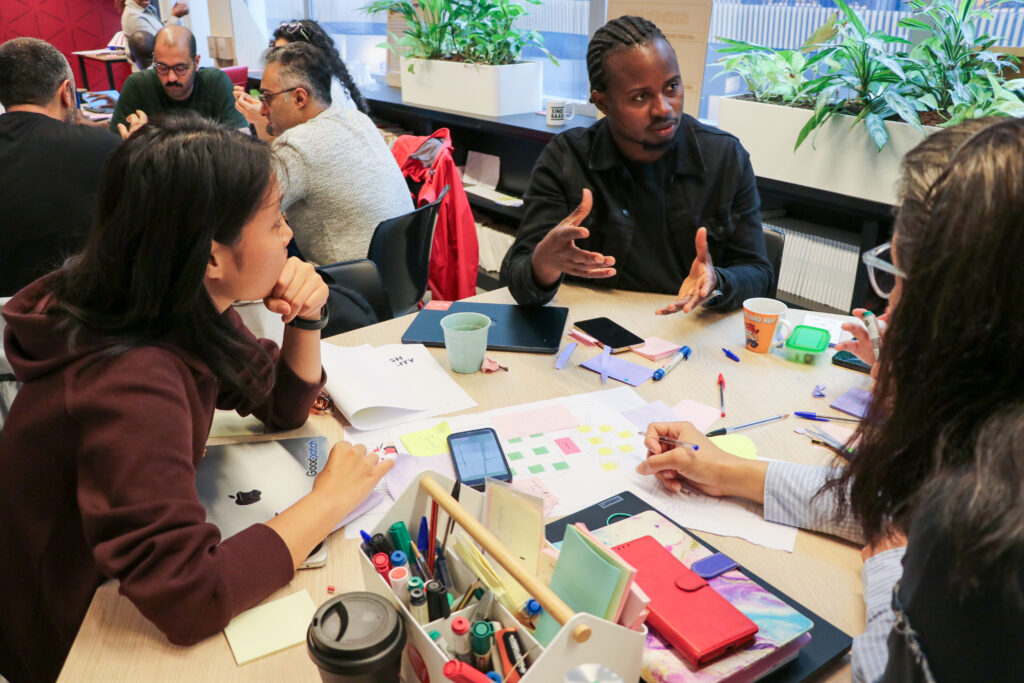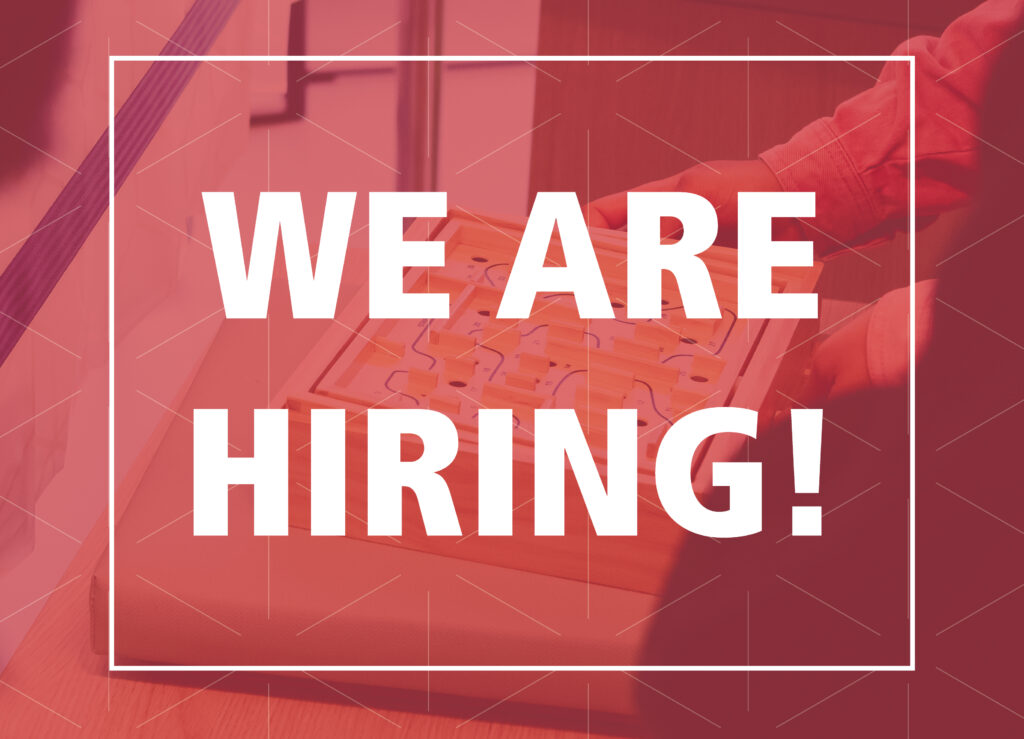Article
Partner highlight: future of business education
What comes to your mind when you think of today’s business education? While traditional business programs and approaches continue to focus on profit and growth, there is an increasing shift toward integrating sustainability more into the curricula.
Meet Barbara Blokpoel, Community Manager at the Centre of Economic Transformation(CET) and Programme Manager at GO-HvA within Hogeschool van Amsterdam(HvA). Together with our trainee team from Digital Transformation Intensive Programme, she is working on an intervention to introduce ecological principles and systems thinking in business education. We talked to Barbara about the project and the larger ambition it aims to achieve.
Barbara, could you please tell us a bit about the background of this project?
Many of our students in the business faculty have a weak understanding of or connection with the natural world in which we live. Generally, they come into our programmes with a stronger affiliation with money and the business world and want to get ahead in the way that our economic systems is set up right now. My observation is that many haven’t spent a lot of time thinking of who they are in relation to the natural environment, or how the businesses they want to be part of are dependent on how we treat the earth. Many urban kids don’t even have the chance to experience ecological ecosystems first hand (for example, the birth or death of an animal, how the seasons impact harvest, the importance of worms, etc…), and are not aware of how their own assumptions regarding nature impact their behaviours and decisions. So, how do we bring that into our business education?
This is when the idea of a metaphor toolbox/intervention came about, and Digital Society School (DSS) is the best place it could have landed. The DSS understands that we live and think in systems. If we are to address emerging global challenges (climate, bio-diversity, migration etc..), then the DSS understanding that transformation is important on all levels – personal, organisational and systemic, is crucial.
How did you get to work with DSS in the first place?
DSS offers programmes within HvA that resonate the most with the transformations we need to make. CET already had one successful trainee project last year on systems thinking in collaboration with one of our research leads. The whole process, the work with the trainees and the quality of the results were remarkable at that time. I am super happy with this group of trainees too. I am pleased with what they bring to the table, the ways they work together, the creativity and the methods used.
What’s the focus of the trainee project within your larger ambition?
In principle, we have 2 primary goals with this project:
- Help bring a perspective on the natural world and provide moments for reflection for teachers and students to think where they fit in the bigger picture. The goal is to make certain hidden perspectives in the economic systems more visible
- Flip that knowledge and provide a manual/toolbox to think about the actual business practices and how they are performed.
I noticed that I increasingly spend more time using metaphors of gardening, farming, and the natural world in general since that language is not part of the economic language. I keep finding other metaphors too that speak to this and growth in different contexts, for example thriving. Growth is not necessarily a bad word but very often it’s very poorly understood and viewed too narrowly.
So, part of this project is also to give people language and moments of reflection about the underlying assumptions in the language we use and the actions we take. Finally, it would shed light on how our behaviour is informed by those basic assumptions and those invisible perspectives.
There is an increasing group of students who are looking for a broader perspective. However, there are still plenty of students and teachers who look for what has been promised with the business and economic narrative for the longest time, and they want to have a place in that system.
What would be an ideal outcome for this project?
We would like to see more teachers who see this as a reasonable tool to use at our faculty. Broader than that, I would love to see other schools using this tool as well to learn with and from each other. Within HvA, there is a push for lifelong learning, and I see an opportunity to use this tool (in a form that is now or an evolved version) used by companies as a part of our consulting and training programmes.
There are already a few early adopters who already indicated that they would be interested in piloting this tool with their students. There’s also room and interest to present this tool through a workshop for a larger community of teachers, to see how they can use it too.
Was there anything surprising when you stepped into working with DSS?
Maybe the quality, skills and expertise that the trainees bring with them. We are talking about seriously capable individuals who already have a lot to offer. And I think the perception within the HvA is that the trainees are like our students, part-time students with their own lives and problems, and they work/study when they are ready. But these are the people who bring perspectives that are broad and from far away and have a lot of knowledge already at their disposal. It’s really great to have eyes that look at things differently, and I appreciate that.
Final remarks
The trainee project is currently mid-way and will be finalised by the end of January. You can follow their progress via the project page on DSS’ website.
Do you seek to implement similar programmes or have an idea related to one of the SDGs? Get in touch via partnerships-dss@hva.nl to explore potential collaborations!


